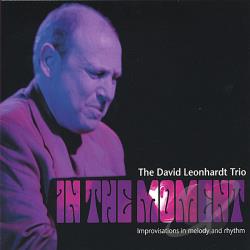
By Claudio Botelho
Happy new year and Happy Easter for you all!
One of these Saturdays, I had the pleasure of
listening to drummer Jimmy Cobb of “Kind of Blue” fame! Wow! Aged 83 years, the guy is as fresh as any! On
searching about Cobb, I’ve found he’s been very, very busy, leading two jazz
groups in NY, besides teaching! The CD I’ve listened is leaded by Joey DeFrancesco
who, with the help of said drummer and legendary guitarist Larry Coryell, have
done, to my years, one of his best efforts ever; an outing of commensurable
balance and joy!
Paying homage to the inimitable Wes Montgomery,
“Wonderful, Wonderful!” is a straight forward job done with passion and
expertise and exceptional rapport. It’s particularly enticing to listen to Cobb’s
work on “Wagon Wheels”: you can almost see the clapping heels of the horses
pulling the wagon! An uncompromising and delightful listening this! Kudos for
everybody and especially for Mr. Cobb and his evergreen drumming! Recommended!
Earlier, I’ve come to know Vince Medoza’s “Blauklang”.
This is another masterpiece from this multi-Grammy-award musician! A strong
departure from the mainstream kind of jazz orchestra, filled with multilayered
arrangement inflections which can, at the same time, let loose the
improvisational skills of the musicians, without, nevertheless, ever losing its
main course! Finesse and inventiveness are his hallmark, akin to geniuses like
Claus Ogerman and Gil Evans.
His music, no matter how busy or intricate, is
always explicit delineated and is a real joy when listened through any fine
sound system, getting as much better as
finer and more detailed is its reproduction. You’ll never have to protect your
ears from any exhilarating blasts (although they exist), as Vince, almost
miraculously, rounds out everything in such a manner that his music, in all the
thoroughness of its several simultaneous planes, never overcrowds our ears.
The suite “Bluesounds” is the core of this
outing (from 2008) and richly shows all his capabilities. It’s a celebration of
the blues. The CD was recorded with mostly European musicians, augmented by
drummer Peter Erskine and brilliant guitarist Nguyên Lê (a French born musician of Vietnamese ancestry),
the latter the featured musician of the album.
Some have been saying his music blurs the line
between jazz and classical music. Would the reason be that, here and there, his
arrangements are graced with some typical ingredients of classical music (harp
punctuations, for instance) which has led some to classify it as a kind of
“third stream” music?
I can’t
help but disagree entirely with this conception as jazz is not a kind of music;
at least not the kind to be comparable to polka, rock, tango, samba, bossa
nova, or even classical music, for that matter.
It‘s no more than a way of playing, which lets the inventiveness of the
musicians play the main role. It’s the music inside another music, and the
former can be pre-planned, instantaneous or a combination of both.
By the way, I was reading, the other day, in
the last issue of Stereophile (April), a statement by John Hollenbeck that
goes: “You know what happens with jazz
musicians is, they think they have to do something different every night”. I’m
the kind of jazz lover who always expects this to happen, and I will never forget an utter
disappointment I had, some years ago, when seeing singer Andy Bey alive and his
performance singing and playing the piano was exactly what existed recorded in his latest album, no more, no
less. What a strange sensation of déjà vu I had in that night! Certainly, Bey
will never be a Mark Murphy, but I surely expected some impromptus…
So I don’t quite agree with Mr. Hollenbeck in
my expectations as a jazz consumer, but also understand that to go into instant
improvisation is a risky business which pulls many dangerously out of their
comfort zone. Being who he is, he surely is a repository of the anxieties of
many…
I’ve also heard the new album of Wayne Shorter
(Without a Net). You can never count
on listening and me-too jazz from Shorter. After all, IMHO, he’s one of the
all-time supreme composers of his art and wouldn’t waste his time doing lesser
works.
The reviews I’ve read about it are nothing
short of rave and at least one imprints on it the mark of his best ever recording! So, it’s with a grain of salt I state I
don’t think so. The album is, indeed, a very impressionist work; the team is
supremely cohesive, but, for me, it
simply lacks the beauty of songs like
Infant Eyes, Footprints, Speak no Evil, Ana Maria, El Gaucho, Pinocchio, Iris, Black Nile, Nefertiti,
Miyako, Adam’s Apple, songs penned by Shorter himself.
So, although it’s a work from the realms of the forefront of jazz, I wasn’t
able to listen to all it’s more than 70 min of duration without some
discomfort, and this told me something about the wholeness of the work: for
some reason, it failed to grab me throughout its scope. As such, it gains my
respect and admiration for what it is: a non patternized-impressionist job, but
it doesn’t win my heart. To round out, I ask: What newness it brings as
compared, for instance, to Miles Davis’ “Live at Fillmore East”, an album
recorded more than forty years ago? It’s not enough to be just out-of-ordinary;
it’s required to tease the feelings, to bring out emotions, beauty, excitement…
Shorter has done some of the all-time best jazz albums, but this one certainly
isn’t one of them. Anyway, Wayne, thank you very much for having done this,
along with many of the best compositions
ever done in jazz history.
Instead of “Without a Net” I’d rather listen to
less adventurous works like Vito Favara’s “Even If” (see its review elsewhere
in this blog). Favara (p), along with Luca Bulgarelli (b), Daniele Tittarelli (ss)
and Marcelo Di Leonardo (dr), on his first recorded album as a leader,
performing four of his songs among others, has done a work of great musicality
and class. For those who can access Italian jazz albums, I advise to keep an
eye on him.
These days, I tried very hard to listen to
albums like Dezron Douglas Trio “ Walking My Baby Back Home”; Vladimir Shafranov
Trio “Whisper Not”; Roma Trio “l’Appuntamento”; Alexis Cole “Someday My Prince Will
Come” and Dan Nimmer “All the Things You Are”. They all have in common the
Venus label production. So, they share something else: No matter where they
were recorded, they were mastered and mixed by Mr. Tetsuo Hara. He has been
using a custom made mixing equipment called “Hyper Sound” for a long time now
and it, IMHO, simply destroys many of the subtleties the piano has to offer, no
matter if it was recorded at Avatar, Seasound Studios, in NYC, or Icarus Record
Studio, in Rome, as is the case here, or if Mr. Manfred Eicher (of ECM sound
fame) decides to lend him one of his maven sound engineers scattered worldwide
to make a recording for Venus. When the master tapes receive the “Hyper Sound”
treatment, the mid range gets instantly blurred and saturated, taking off most
of its natural color and drama, thus transforming them in a poor shade of
reality. In addition, the levels of the recordings get unusually high, in sharp
contrast with others provided by any other label recordings.
Victor Lewis is an audiophile and, besides
being a fantastic drummer, knows a thing or two about well recorded music. He
joins Vladimir Shafranov as a member of the above mentioned album. I wonder
what he thinks of honorable Mr. Hara when he spins one of Venus recordings on
his music reproducing equipment… How about the shimmering of the ride cymbal of
your kit drum heard through a Venus mastered recording, Mr. Lewis?...
Those who listen to Venus records CD’s on any
regular basis have all the reasons in the world to claim vinyl sound is
superior…
One outstanding album I’ve also heard: Marc
Copland’s “Modinha, Vol.1”. Copland, Gary Peacock and Bill Stewart, in three
out of eight tunes, doing free improvisations, have showed what jazz is all
about. Stewart added a full pallet of colors to it as much as any drummer ever
could. Copland’s dark and sometimes eerie style is a real one-of-a-kind and is
never like anyone else in his singularity. Copland is simply …Copland, period.
Wonderful recording, filled with ever-changing modes and climaxes. Fabulous!
(This is a recording of 2006, but points to a future many will never arrive…)
Two disappointments: Jacky Terrasson’s
“Gouache”and Patricia Barber’s “Smash”. One too grandiloquent for my taste, the
other a cheap fake of the original…















